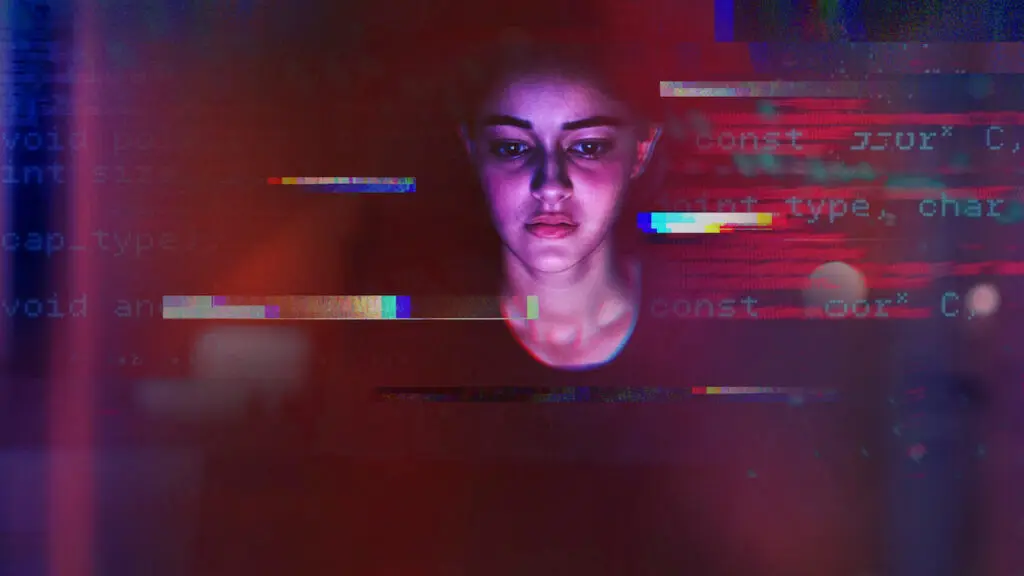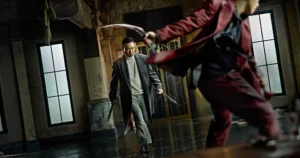Summary
A tortuous first half eventually gives way to a reasonably effective cautionary tech tale, but CTRL holds no surprises except its commitment to cynicism.
Ever since Unfriended popularized the once-novel concept of a film unfolding entirely on someone else’s screens, there hasn’t exactly been a shortage of imitators. CTRL is another in a long line, this one streaming on Netflix and weaving in the perils of social media and AI to complete the bingo card of contemporary always-online topicality.
Unlike Unfriended, CTRL isn’t a horror movie, or at least it isn’t supposed to be. There is, to be fair, something deeply horrifying about the urge to live one’s entire life like an open wound to satiate the voyeurism of countless faceless followers, and I don’t particularly trust AI assistants either. But Vikramaditya Motwane’s Hindi-language film isn’t about demons and ghosts. The bad guys are unscrupulous businessmen and soulless clout chasers; the victims are us.
Ananya Panday stars as Nella Awasthi, a social media sensation along with her boyfriend, Joe (Vihaan Samaat). The entire film takes place on the screens of Nella’s devices; her laptop and phone, her social media accounts and chat threads. What begins as a showreel of an “it” couple becomes an invasive chronicle of their messy breakup. But this isn’t the half of it.
In her desire to rid Joe from her life entirely, including digitally, Nella enlists the services of an AI chatbot from the titular company, CTRL. The thing’s a nightmare. With a bland monotone, flirty demeanor, and badly-animated visage, it’s everything presumptuous and impersonal about AI assistants in one smirking package. But it works. She sets about burning and cutting up his belongings, scrubbing him from old pictures, and shaming him online, all at the urging of her new pal.
Soon, Joe disappears, and Nella sets about finding him – ala Searching and Missing – by digging through his entire online identity, unveiling a scandal that she finds herself suddenly gripped by.
CTRL suffers from a disorienting first half that plays out almost entirely in montages. The opening scenes, breakup, and subsequent fallout are all depicted in this odd way, which after a while made me worry that the entire movie was going to be one long, indecipherable reel. But it settles into something more coherent eventually.
The screenplay from Avinash Sampath isn’t anything to write home about, but some of the tech flourishes are immersive. Video calls are filmed in natural light and there’s a cool logic to the plotting that follows a familiar trail of online behavior. But it’s the underlying implications that are especially bleak.
We see little of Nella and Joe’s romance, but we get enough of a sense of it through dialogue to know it was miserable, all for public viewing and carefully calibrated to drum up engagement. As things progress and a sinister, pervasive scheme to misuse user data for dystopian purposes reveals itself, we understand why people like Nella, Joe, and everyone who follows them would be particularly susceptible to it.
But is this especially revelatory? I’d argue not. We know that our current obsession with social media and the commodification of personal experience is a net negative; we know how insufferable influencers are, that nobody reads the terms and conditions, and that people are all too willing to hand over vast swathes of personal information without even realizing it. CTRL has things to say, but nothing you haven’t heard before.
What I ultimately respect is the movie’s bleak non-ending that resists the urge to reframe Nella as a hero. The point is clear. We have given ourselves to our technology; we used to own our computers and smartphones, but now they own us. We’re slaves to an endless stream of ones and zeroes and we’re glad of our chains. Resistance is futile. Going offline is to be alone.
Grim? Absolutely, but it’s difficult to argue with the accuracy. A more interesting movie would have perhaps told us something we didn’t already know, though.




